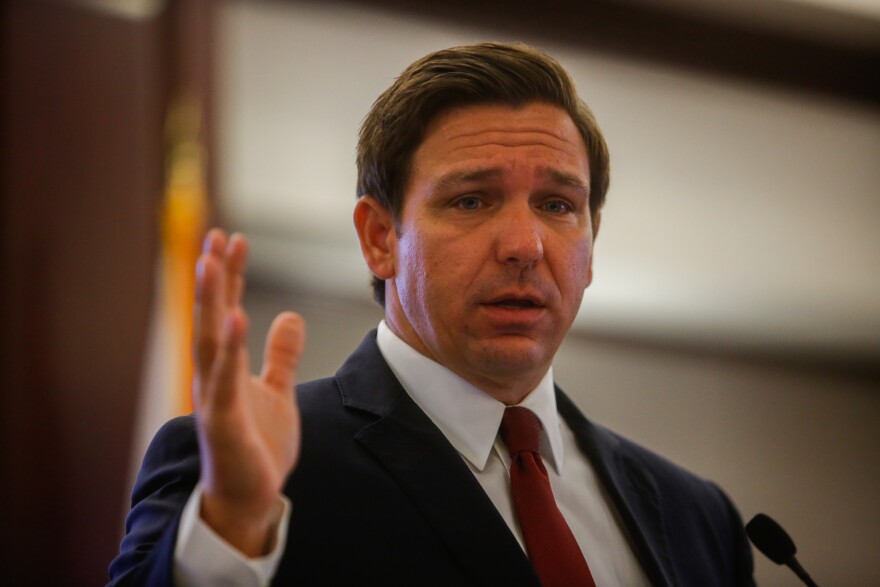The Florida House on Monday proposed an overhaul of the Reedy Creek Improvement District that would give power to Gov. Ron DeSantis, who targeted the district last year after he clashed with the Walt Disney Co. over a controversial education law.‘
The 189-page bill (HB 9B) was released on the first day of a special legislative session called, in part, to deal with the Reedy Creek issue. The bill would undo a DeSantis-led move last year to dissolve the taxing district — but would revamp its governance, including its name.
The bill, sponsored by Rep. Fred Hawkins, R-St. Cloud, would give DeSantis authority to appoint a five-member Board of Supervisors that would direct the district. After a transition period of up to two years, the district’s name would change to the Central Florida Tourism Oversight District.
The state created the Reedy Creek district in 1967 and essentially gave Disney control over issues such as land use, fire protection and sewer services that are typically handled by local governments. The Board of Supervisors has been elected by landowners in the district.
But Disney angered DeSantis last year by publicly opposing a law that restricts instruction about gender identity and sexual orientation in schools. As a result, Republican lawmakers passed a measure to dissolve Reedy Creek and five other special districts across the state. The dissolutions, however, do not take effect until June 1, giving time for lawmakers to re-establish the districts and make changes.
DeSantis last week took aim at what he described as “special status” for Disney.
“We are not going to have a corporation controlling its own government. That’s going to revert to the state,” DeSantis said Wednesday. “The state is going to have a board to run it, so Disney will not have self-governing status anymore. We are going to make sure that there are no special legal privileges and that they are abiding by the same laws. That’ll be in the bill, and we’re making sure they are paying their fair share of taxes and paying the debt.”
Under the bill, DeSantis would appoint the five supervisors, who would be subject to Senate confirmation. Current supervisors would be jettisoned from the board.
Rep. Anna Eskamani, D-Orlando, called the measure a “power grab” by DeSantis.
"Reedy Creek bill just dropped; it's 189 pages long and I'm still reading it but it's a clear power grab by the Governor,” Eskamani said in a Twitter post Monday afternoon. “He gets to appoint all FIVE board members.”
The revamped district would continue to have wide-ranging authority, including the ability to levy property taxes and fees, issue bonds and provide services such as water and sewer systems, roads and parking facilities.
The bill also gives a glimpse of why it would be difficult to move forward with dissolving the district. As an example, it addresses the handling of bonds issued by Reedy Creek and already-existing contracts.
The bill said it “is the intent of the Legislature to preserve the authority necessary to generate revenue and pay outstanding indebtedness.”
“No bond or other instrument of indebtedness previously issued by the district or any district project financed by bonds or other instruments of indebtedness shall be affected by this act,” the bill said. “The provisions of this act shall not affect existing contracts that the district entered into prior to the effective date of this act. The provisions of this act shall be liberally construed in favor of avoiding any events of default or breach under outstanding bonds or other instruments of indebtedness or the district's existing and legally valid contracts.”
The bill is expected to be heard Wednesday by the House State Affairs Committee. If passed by the full House, it would go to the Senate.
News Service staff writer Ryan Dailey contributed to this report.




